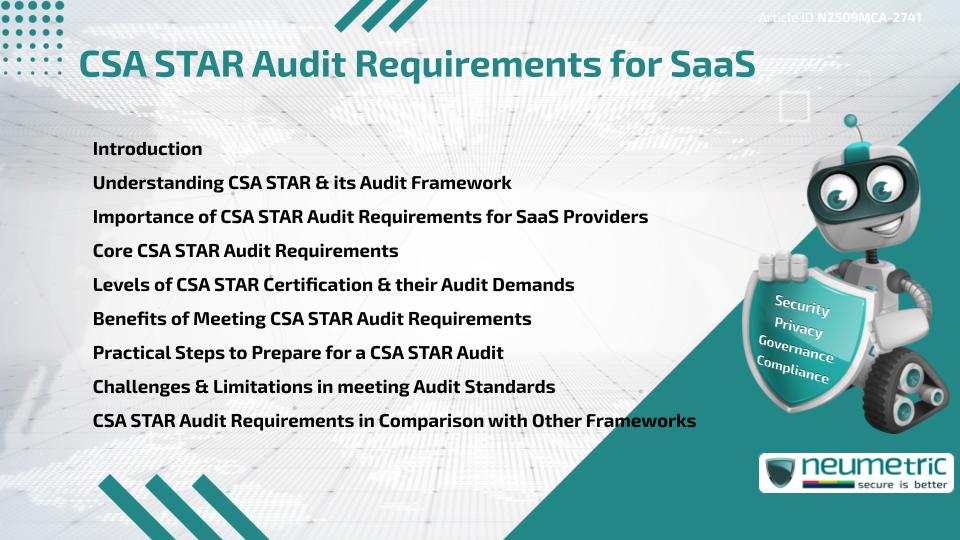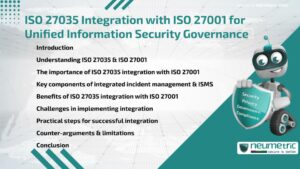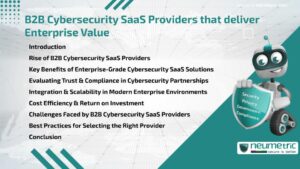Table of Contents
ToggleIntroduction
CSA STAR Audit requirements form the foundation of Security assurance for Software as a Service [SaaS] providers operating in the Cloud. The Cloud Security Alliance [CSA] created the Security, Trust, Assurance & Risk [STAR] program to evaluate Cloud Security Practices against globally recognised standards. For SaaS businesses, adhering to CSA STAR Audit Requirements not only ensures Compliance but also builds Trust with Customers & Partners who demand Transparency in how their data is protected.
Understanding CSA STAR & its Audit Framework
The CSA STAR program is the leading assurance Framework designed specifically for Cloud services. It integrates industry-recognised standards like ISO/IEC 27001 with CSA’s Cloud Controls Matrix [CCM], enabling SaaS Providers to validate their practices against rigorous benchmarks.
Audits under the STAR Framework provide a structured approach for assessing Policies, technical Controls & Governance measures, ensuring that SaaS operations align with Security Best Practices.
Importance of CSA STAR Audit Requirements for SaaS Providers
SaaS Providers store & process massive volumes of sensitive Customer Data, making them prime targets for cyberattacks. Meeting CSA STAR Audit requirements reassures Customers that data is handled with the highest standards of Security & Accountability.
From a business perspective, these Audits also simplify Vendor Assessments, speed up deal cycles & demonstrate a proactive stance on Compliance. In competitive markets, STAR-certified SaaS Providers often stand out as trustworthy partners.
Core CSA STAR Audit Requirements
The key Audit requirements revolve around the following areas:
- Governance & Accountability – Clear documentation of Policies & Responsibilities.
- Data Security & Privacy – Encryption, Access Control & Compliance with Privacy laws.
- Risk Management – Ongoing Risk Assessments & Mitigation strategies.
- Incident Response – Defined Procedures for detecting, reporting & resolving Incidents.
- Vendor Management – Oversight of third parties involved in data processing.
- Transparency – Publishing Audit results & maintaining openness with Stakeholders.
These elements ensure that SaaS Providers align with both Operational security & Governance principles.
Levels of CSA STAR Certification & their Audit Demands
CSA STAR Certification is offered in three levels, each with unique Audit requirements:
- Level 1: Self-Assessment – SaaS Providers publish responses to CSA’s Consensus Assessments Initiative Questionnaire [CAIQ].
- Level 2: Third Party Certification – Independent Auditors assess Compliance with ISO/IEC 27001 & CCM controls.
- Level 3: Continuous Monitoring – SaaS Providers demonstrate ongoing Compliance with real-time transparency mechanisms.
The level chosen depends on the provider’s maturity, resources & the demands of their Client base.
Benefits of Meeting CSA STAR Audit Requirements
SaaS Providers gain significant benefits by aligning with these Audit requirements:
- Enhanced Customer Trust & market reputation
- Streamlined Compliance with multiple Regulatory frameworks
- Competitive advantage in contract negotiations
- Reduced Risk exposure through Continuous Monitoring
- Stronger partnerships with enterprises seeking verified Cloud providers
Compliance with STAR audits signals a commitment to excellence in both security & Governance.
Practical Steps to Prepare for a CSA STAR Audit
SaaS Providers can prepare for audits by:
- Conducting Gap Analysis – Assess current controls against CCM.
- Updating Policies – Ensure documentation reflects current practices.
- Training Staff – Prepare Employees for Compliance & Security expectations.
- Performing Mock Audits – Simulate the Audit process to identify weaknesses.
- Engaging Accredited Auditors – Collaborate with certified bodies for Level 2 & above.
These steps help providers approach Audits with readiness & confidence.
Challenges & Limitations in meeting Audit Standards
Despite its benefits, meeting CSA STAR Audit requirements can be challenging. Smaller SaaS firms may face high costs, resource shortages or lack of internal expertise. Additionally, aligning CSA STAR with existing frameworks like SOC 2 or PCI DSS may create overlaps that require additional effort to harmonise.
These challenges highlight the importance of phased planning & expert guidance in Audit preparation.
CSA STAR Audit Requirements in Comparison with Other Frameworks
Unlike SOC 2 or ISO 27001, which cover broader Information Security practices, CSA STAR is uniquely tailored for Cloud environments. Its integration of CCM makes it especially relevant for SaaS Providers. While SOC 2 focuses on Service Organisation Controls & ISO 27001 emphasises Information Security Management, CSA STAR offers a more Cloud-centric assurance Framework.
Conclusion
CSA STAR Audit requirements provide SaaS Providers with a structured path to strengthen Security, demonstrate Accountability & enhance Market Credibility. By aligning with this Framework, SaaS Providers not only achieve Compliance but also earn the Trust of Customers & Partners in a highly competitive industry.
Takeaways
- CSA STAR is the leading assurance Framework for Cloud providers.
- Audit requirements cover Governance, Data Security & Incident Response.
- Certification is offered in three levels, from Self-Assessment to Continuous Monitoring.
- Meeting requirements strengthens Compliance & Customer Trust.
- Challenges exist but can be addressed through planning & preparation.
FAQ
What are CSA STAR Audit requirements?
They are the Security, Governance & Compliance benchmarks that SaaS Providers must meet under the CSA STAR Certification Framework.
Why are CSA STAR audits important for SaaS Providers?
They validate Cloud Security practices, build Customer Trust & provide a competitive edge in the marketplace.
What are the levels of CSA STAR certification?
Level 1 (self-Assessment), Level 2 (Third Party certification) & Level 3 (Continuous Monitoring).
How do CSA STAR Audits differ from SOC 2 or ISO 27001?
CSA STAR focuses specifically on Cloud Security Risks, while SOC 2 & ISO 27001 apply to broader Information Security contexts.
What is the role of the Cloud Controls Matrix in audits?
The CCM acts as the core set of controls used to evaluate a provider’s Security & Compliance posture.
How can SaaS Providers prepare for audits?
By conducting Gap Analysis, updating Policies, Training staff & engaging accredited Auditors.
Do CSA STAR audits apply only to large providers?
No, both small & large SaaS Providers can pursue CSA STAR Certification depending on their Customer needs & Business Goals.
Need help for Security, Privacy, Governance & VAPT?
Neumetric provides organisations the necessary help to achieve their Cybersecurity, Compliance, Governance, Privacy, Certifications & Pentesting needs.
Organisations & Businesses, specifically those which provide SaaS & AI Solutions in the Fintech, BFSI & other regulated sectors, usually need a Cybersecurity Partner for meeting & maintaining the ongoing Security & Privacy needs & requirements of their Enterprise Clients & Privacy conscious Customers.
SOC 2, ISO 27001, ISO 42001, NIST, HIPAA, HECVAT, EU GDPR are some of the Frameworks that are served by Fusion – a SaaS, multimodular, multitenant, centralised, automated, Cybersecurity & Compliance Management system.
Neumetric also provides Expert Services for technical security which covers VAPT for Web Applications, APIs, iOS & Android Mobile Apps, Security Testing for AWS & other Cloud Environments & Cloud Infrastructure & other similar scopes.
Reach out to us by Email or filling out the Contact Form…





